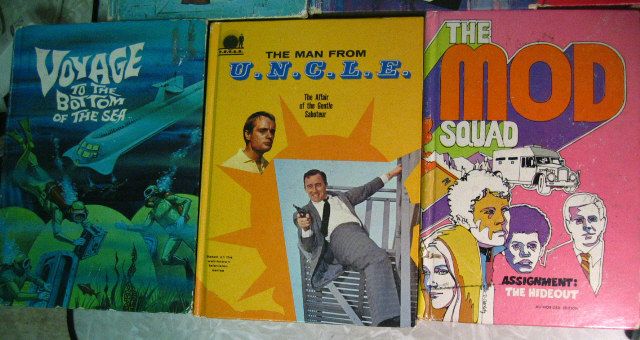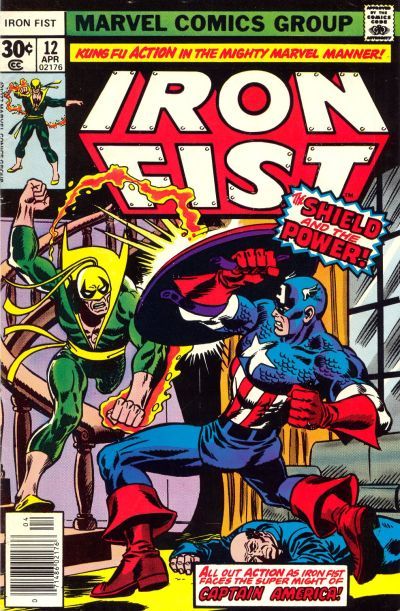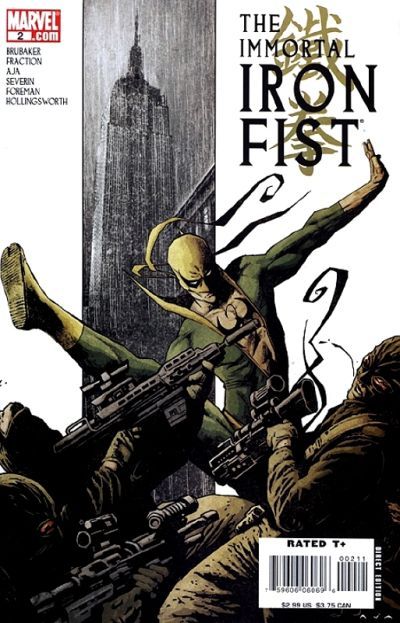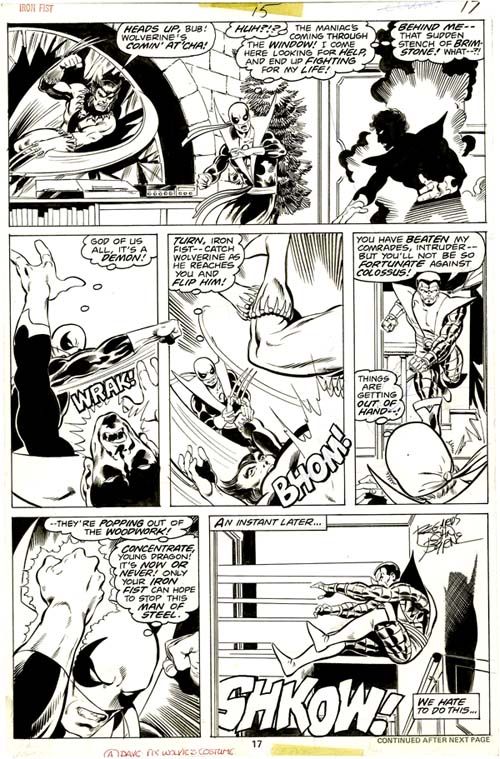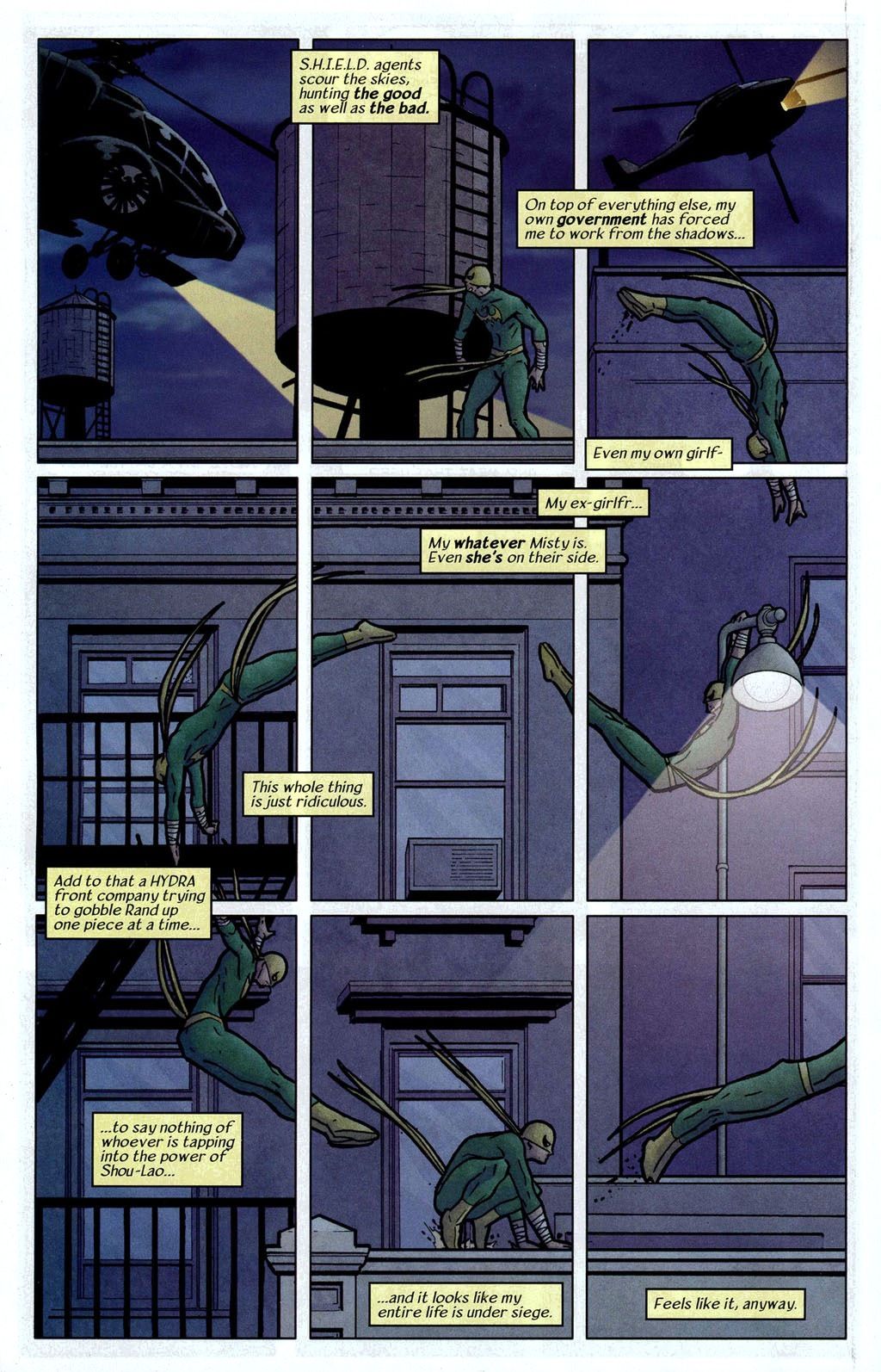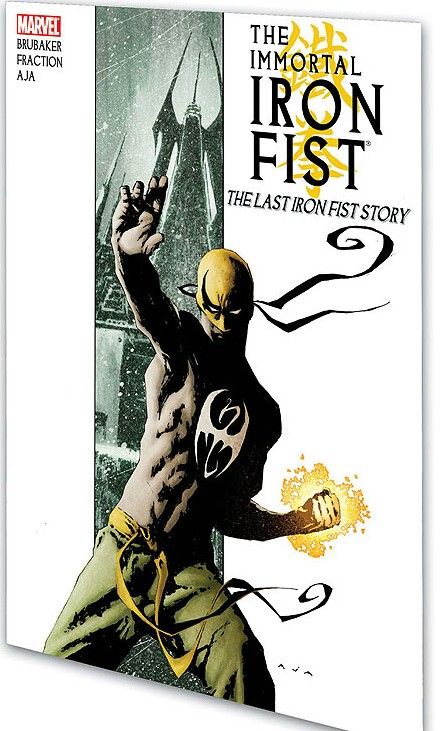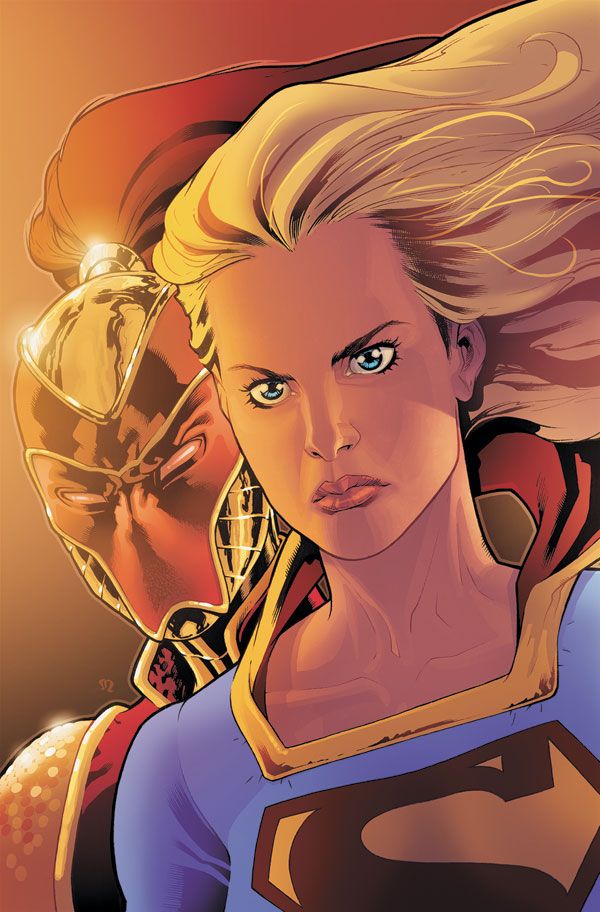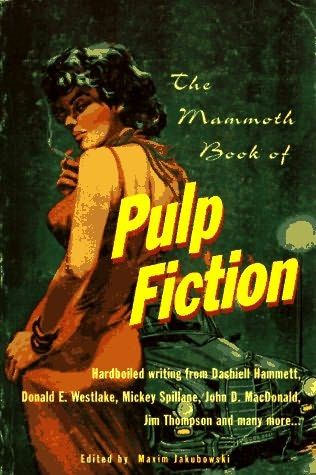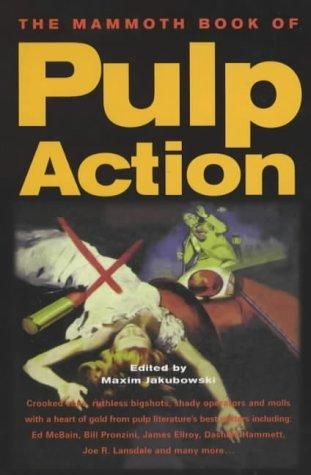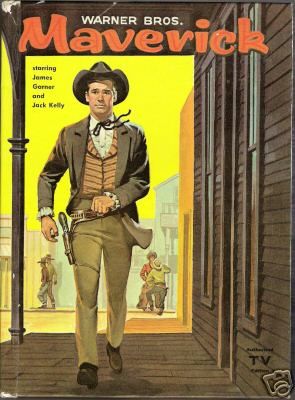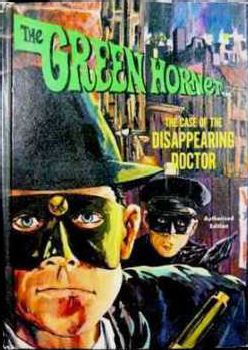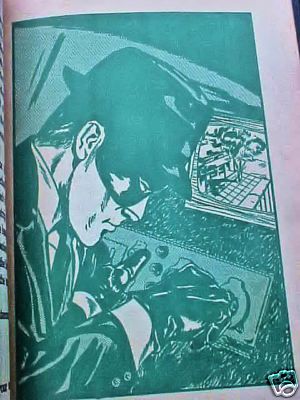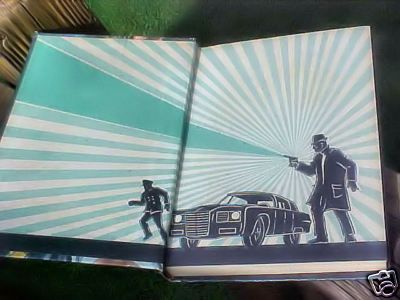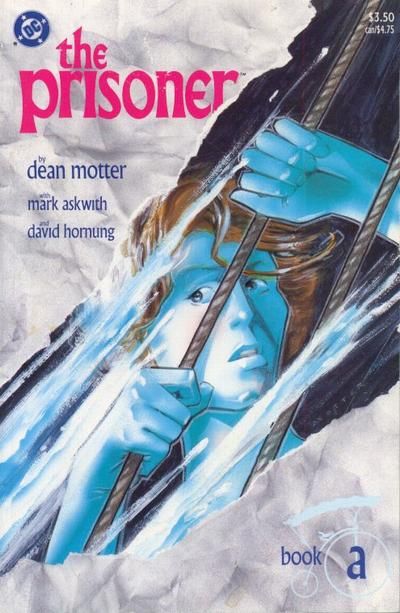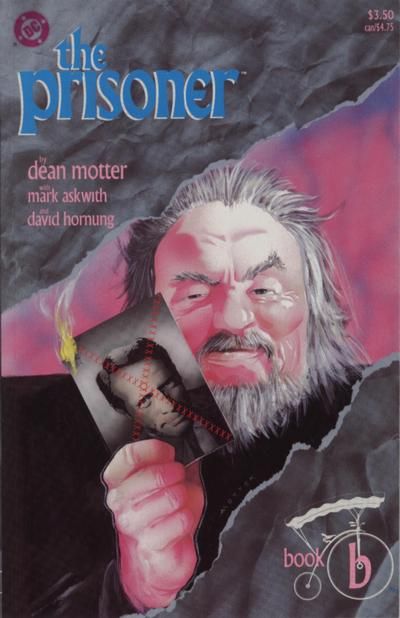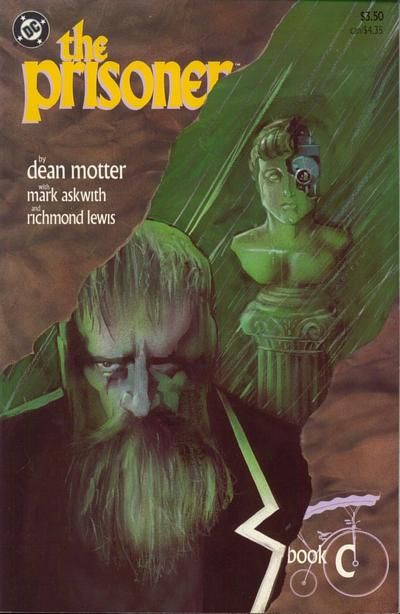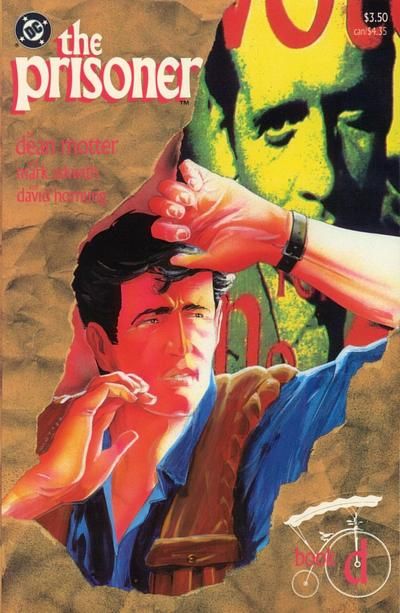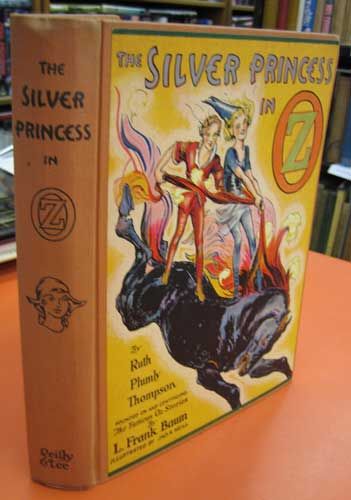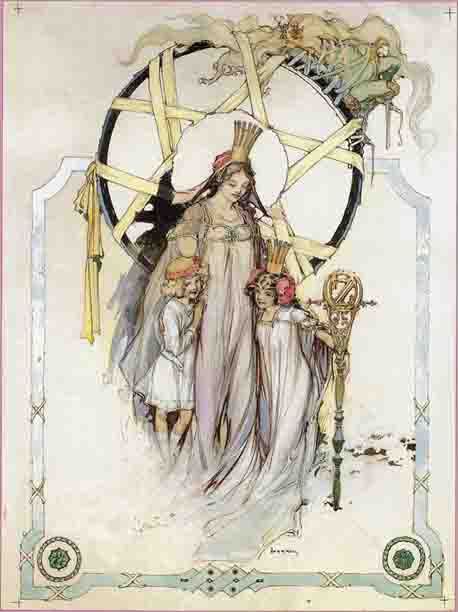Every so often, I take a pile of stuff, any individual item of which isn't worth a whole column in and of itself, but nevertheless may have some interest for regular visitors to this site... and put them all out at once in a patchwork hodge-podge column outing.
Guess what? It's that time again. Oddly enough, a theme developed over the course of the week... getting more bang for your comics buck. Let's see what's in the pile, shall we?
*
To begin with, some reader mail.
Most of the time, when people get testy with me about something I've written, I try not to get into a big back-and-forth about it. Only so many hours in the day, nobody ever wins these things, everybody's entitled to an opinion, etc., etc.
But this one kind of stuck in my craw, a little, because I find it symptomatic of the craziness that drives the superhero comics industry.
Without getting too into the specifics -- I don't want to embarrass the guy, he wasn't nasty, just emphatic -- a reader ventured the opinion that there was something ideologically wrong with my suggestion that if comics are going to be designed, written and sold with an eye towards their eventual home as a trade paperback collection, that maybe we should just, you know, get on with it and BE a book-publishing industry. That this suggestion somehow implied my secret shame at being seen with a standard 32-page booklet, or that I was being disloyal to comics, or that I took some sort of elitist, smug pride in reading my comics in book form.
Normally after reading comments like that I would just snort and move on, but this is worth taking some time to walk through, especially since our Dread Lord And Master was talking about Marvel and DC's book pricing policies earlier this week.
First of all, let's dispense with the "shame" charge, okay? Of all the Comics Should Be Good crew, I think I have confessed to more nerdy fan ridiculousness than any of my colleagues. I'm here in print every week talking about loving socially-irredeemable crap ranging from Mack Bolan novels to the Filmation Aquaman cartoons to Marvel's 70's Godzilla comic. Under my real name, even, complete with photograph. If the accusation is that I'm worried I might provide ammo for people to embarrass me about my pop culture tastes, well, sorry, guy, but I'm thinking that ship sailed years ago. It's all in the archives. Fanboy with a capital F, that's me. I'm afraid there's just too much textual evidence out there for me not to own it. How does my preferred format for the stuff make a difference?
But the reason I tend to stump for the idea of comics-as-books isn't ideological, at least not in the sense that I'm pushing for some kind of superhero-comics "We're books now! Behold our legitimacy!" pride parade. It's simple economics. The plain truth of the matter is that the comic book, as the format's traditionally been understood in the U.S., doesn't really exist at Marvel and DC any more.
Look, I loved the spinner-rack monthly periodical as much as anyone (and was so willing to be seen with them I started a class in how to make them for Seattle's after-school arts program.) But the fact is that those are pretty much gone. At least in the sense they once existed-- as a mass medium, a newsstand presence comparable to any other monthly magazine. Even Archie Comics maintains their market presence largely in digest form these days.
Certainly the "comic book" in its spinner-rack incarnation is dead as far as superheroes are concerned. Modern superhero monthly comics strike me as nostalgia publishing, about on a level with those pulp replicas from Adventure House. (Those are pretty awesome, by the way, but my point is that nobody confuses them with the mainstream magazine presence pulps used to have.) Comic books as produced by Marvel and DC today exist largely to placate an audience that stubbornly refuses to let them go. Because economically, currently this is a plain stupid way to read superhero stories.
Just pulling a random example out of a hat:
When I was a kid, long ago, I was a big fan of Iron Fist. I liked a lot of what Marvel was putting out then, to be honest, and in those days I could keep up with almost all of it.
A comic book was thirty cents. Even adjusted for inflation from 1977 to 2008, that's still only $1.09. Not unreasonable even when I was confined to just mowing lawns on the weekend for my spending money.
Now Iron Fist is back. I still have affection for the character and I'm interested in his new adventures, especially since several of my fellow writers here at CSBG seem high on the book. Worth checking out?
Sure... until I look at the price tag.
$2.99 is almost three times the price of the comics I grew up on even after that 1977 price is adjusted for inflation. And for three times the cost to me, I get... less story.
Think I'm kidding? Here's a typical Iron Fist page from the Olden Tymes.
That was a pretty dense read. For my money I got somewhere between twenty-five minutes and half an hour's entertainment.... for the equivalent of one 2008 dollar. That's not bad.
And here's a random sample from the current version.
Bear in mind that I'm simply talking about presentation. For the sake of argument let's say I enjoy both incarnations of Iron Fist equally-- and in fact I do, pretty much. There's no qualitative judgment here... it's a matter of density. There's measurably less story content in the newer, more expensive periodical.
Not to beat it into the ground, but since most comics writers today think in terms of the eventual paperback collection, stories run six issues or more. In the older books I grew up on, stories were generally two to three-parters at most, and several were done-in-one. But let's say they did go six parts. Again adjusting for inflation, even in 2008 dollars I'm still only out six and a half bucks or so. But in the real-life 2008 comics retail marketplace that six-part story costs me $17.94, and I can usually read it in about an hour at most. No matter how good the art is, it still goes by pretty fast. Now split that hour over six months. Ten minutes to read the comic each month... if I linger over it and admire the art. Ten minutes... for three dollars. Sorry, that's not "widescreen"... that's "padded," at least to my old-school sensibilities.
(And none of this even addresses all the stylistic changes; the inability to walk in on most modern superhero comics in the middle, for example. Today's books are meant as chapters. You're signing up for at least a six-month ride or you might as well not bother.)
On the other hand, if I am a patient man, my patience is rewarded. I can wait for Marvel to collect this story in a book, the same six-issue arc plus an additional eight-page story and a few pages of extras.
Here it is in hardcover. I get it in an attractive, permanent format, I have the added bonus of getting to read the whole thing at a sitting along with some nice extra frills, and best of all, I get it cheaper.
Right now this hardcover edition is offered on Amazon for $14.99. That's already a significant savings over the $17.94 you'd pay for that story at six months the hard way, but there's more. Only a dope would buy it new when you can click on "used" and get it for $6.00. Hell, that's less than six 1977 inflation-adjusted original Iron Fist comics. My $6.00 hardcover arrived looking brand-new. Read once and resold, most likely.
The Amazon listing for the trade paperback version looks even more attractive in terms of price-- $10.99 new and $5.39 used.
There are downsides, certainly. There are shipping charges, and you are always gambling a little bit when you get things mail-order. But you can minimize your cost and risk in those areas and the bottom line is still that it's a hell of a lot more sensible.
The crazy part, though, is that this system depends on the hardcore Wednesday-or-bust ideologues like my critic to make the whole thing work. They subsidize the operation.
Seriously. I could never afford to cherry-pick Marvel hardcovers off Amazon for five to seven dollars each without the booklet loyalists out there proving their devotion to a clearly outmoded format.
I certainly appreciate it. Honest, I do.
But maybe... if we ALL got on board with the book-packaging idea, we might drive publishers to produce comics that would be a little more affordable for everybody. As, say, book publishers have done.
I miss the days when comics were a mass medium and not a specialty item. I think that's healthier for everyone, from both an artistic and economic perspective. Book-format comics, marketed and sold like mass-market paperbacks or manga digests, seem to me to be the easiest way to get there. In short, I'm hoping we can get comics that are more inclusive, with a wider audience. I don't think that's an elitist position, to be honest.
Does that clarify why I like the idea of comics as books? (If anyone's still reading this and not over searching Amazon for "Marvel+hardcover"...)
*
Of course, the day after I pulled the above column fragment out of the file, dusted it off and proofread it, Supergirl #33 came out.
Who let this James Peaty guy into the club? He's not doing any of the things a writer's supposed to do on a DC book.
First of all, this comic's done-in-one. Not just done-in-one but self-contained, I got through it without needing any other comics to reference. Entertaining, well-written, the setup was good and the twists were clever, Supergirl won by being smart and then she showed decency and mercy towards her antagonists... and even though Empress is a character I knew nothing about and apparently one who also has an incredibly convoluted backstory, I never got lost. It even took me a little longer than ten minutes to read it.
On top of all that, it's something that not only entertained me, but that I could pass on to a bright youngster without any fear of reprisal. We even got a Supergirl cover that doesn't look like something off a Hooters calendar.
What the hell? I didn't think there was anyone working on a DC spandex book that even knew how to do this stuff any more. (Not counting Kurt Busiek, that is. He used to try it sometimes when nobody was looking, but he's all tied up with Trinity now.)
Seriously, this was one of the nicest throwbacks I've ever seen. You know when geezers like me are grumping about how things used to be? We're not arguing for the return of Streaky the Super-Cat or any of that crap. We just would like to see more comics like this. Smart and fun and (relatively) continuity-free; and best of all, not filled with cheap pandering to the arrested-adolescent demographic that demands all superheroes have EXTREME VIOLENCE! and HOT BABES!, whether that's appropriate for a particular title or not.
I don't think it's asking a lot... and it can't be that hard because DC showed in this week's Supergirl that they can still publish stuff like that.
So of course it's a fill-in. Next time we will be seeing a Supergirl from a new creative team that's all tied in with the Superman continuity and so on and so on. (Ironically, I picked this up by accident, I thought the new team started this month and figured I'd see what was up.) I still wish the new team well, but in the meantime, I'd like to see writer James Peaty do more stuff like this. He looks like a name to watch for. Pity it apparently won't be on Supergirl.
(None of the above is meant to slight artist Ron Randall, who does a very nice job on the story too. But I expect Ron Randall to be good. The writing was a pleasant surprise.)
Anyway, I don't think comics like this blow a hole completely through the let's-just-do-books argument, because they're clearly the exception. (If there were more of them and they went to a wider audience there'd be no need to have the argument at all.)
It's nice to have a current example around of what I'm talking about, though. Everyone? This is what I mean when I talk about "fun comics." It's not re-inventing the wheel, it's not a turning point, it's not anything other than an entertaining Supergirl adventure, which is a reasonable expectation for someone picking up a Supergirl comic book. Understand? This should be the baseline. This is at minimum what we should get every month. (Now if we could just get it cheaper.)
But it's not the baseline. Instead it's a freak accident. Which is why guys like me get so irritated at the DCU's current direction.
*
Speaking of giant hunks of comics at bargain prices, I'm surprised I've seen so little on the review sites about the new comics entries in the Mammoth Book Of... series.
I fell for The Mammoth Book of Best War Comics a few weeks ago and I really like it. Marvel and DC and EC all have refused to allow stories from their respective libraries to be included, so really it ought to be called Best War Comics That Aren't All That Famous. Still, that limitation has forced the editors to think outside the box a little and the result is a very cool collection with a nice indie sensibility. You get Will Eisner's Last Day in Vietnam, the short manga that eventually was revamped into Barefoot Gen, and lots of Archie Goodwin's Blazing Combat. "Best" may be a bit much, but it's good, and you can't beat the price.
Likewise The Mammoth Book of Best Crime Comics is way cool, and here the fact that the major comic publishers snooted inclusion in the book doesn't hurt nearly as much.
All sorts of good stuff, including a choice Ms. Tree reprint, a Will Eisner Spirit, and Dashiell Hammett scripting over Alex Raymond's art on Secret Agent X-9. Take a look at the list of names on that cover. This one gets a lot closer to 'best.'
Actually I'm rather fond of some of the prose entries in the Mammoth series, as well. The Pulp Fiction and Pulp Action volumes are great fun.
All available for what you'd spend on a Marvel Essential-- or for considerably less, if you order online. Recommended.
*
It's not strictly comics-related, but people seem to enjoy the tales of Julie's and my scrounging around for weird old rarities in bookshops. (This can actually be a profession for some people, though we're not that hardcore about it.)
We've been having a bit of good fortune in that area recently. Since the last time I mentioned this hobby, I've had an astonishingly easy time picking up a number of the old Whitman "TV Favorite" hardcovers for cheap. I love these books and quite a few comics people worked on them. For example, here's Maverick from Alex Toth.
This is a lovely book just to look at, and the story by Charles Coombs is pretty good too.
Finding a couple of these on the road renewed my interest in them, so I've been looking around here at home, too. In an amazing run of luck, over the last few weeks I've managed to score some very hard-to-find volumes... for peanuts.
Here are three I've wanted for quite a while. The trouble with hunting antique books based on TV shows is that you're not just competing with bookscouts; you also have to get there ahead of the memorabilia collectors. Because of that, books that are spun out of "cult" shows are particularly hard ones to find.
So I was very pleased to nail down, at long last, Voyage To The Bottom of the Sea (by old-school SF writer Raymond Jones!) and the first of the two Man From UNCLE entries, as well as the second Mod Squad volume. (We've been catching up with the Squad on DVD the last week or so, and there's only one word for the experience: "Solid." Check out this clip --about four minutes in-- if you think I'm kidding...)
But I'm getting distracted. The point is, the score I am most pleased with from the last couple of weeks is this one.
The Green Hornet: The Case of the Disappearing Doctor is damnably hard to find for under fifteen or twenty dollars... at least, in anything like readable condition. That one has the antique collectors, the TV-memorabilia people, the comics fans, and the Bruce Lee fans all after it.
The story, by Brandon Keith, is pretty good and certainly hits all the marks one would expect in a story based on the Hornet's TV show. The illustrations are by Larry Pelini.
They're pretty good too, but curiously static. No action scenes are illustrated at all, though there are several good ones in the actual story. The closest we get to an action scene with the Hornet and Kato are the book's endpapers.
Which are admittedly kind of cool. But that's it. Still, I'm very pleased to have found a copy at last... for three dollars, yet.
It was Julie that made the real score last week, though; she's still grinning about it. I had to promise her I'd mention it in the column.
You have to understand that for me, bookscouting is just a fun way to kill a couple of hours nosing around thrift shops or used bookstores. For my wife it's a mission.
The thing that absolutely fills my bride with joy is finding a bargain. She will spend hours happily burrowing through quarter boxes at a convention, or browsing the dustiest, most inaccessible shelves at a Goodwill, just for the thrill of scoring that one amazing find. So for her birthday last week one of the things I gave her was a forty-dollar gift card for Goodwill, thinking she could go out on Saturday with her sister and make a day of it. An orgy of thrift-store spelunking.
Julie actually has made several days of it. She has been stopping by the different Goodwill shops in town after work for the last few days, cheerfully searching each one inch by inch for that one cool thing that's too awesome to pass up. As much as I protested that she should be spending it on herself, she insisted on looking for things for me, too.
She was rather smug about finding all four parts of DC's The Prisoner Prestige Format miniseries; and in really good shape, too.
Somehow they got larded in with "children's books" and she got them for 79 cents each. That pleased her, but that wasn't the real score.
The book she came home gloating over was this one.
The Silver Princess in Oz, by Ruth Plumly Thompson.
Julie loves the Oz books. She has always loved the Wizard of Oz movie, but she had no idea there was a series of books until she met me. And when she saw the books, she fell instantly in love with the illustrations.
She adores John R. Neill's work.
So Oz books are always on her short list.
She's not alone. When it comes to children's books, the Holy Grail for a bookscout is the Oz series. Believe it or not, the entries done by Ruth Thompson after Frank Baum passed away are just as highly valued as Baum's originals, for the most part. (And-- blasphemy-- I think they're better stories, by and large.) A good-condition copy of this particular one, Silver Princess, goes for anywhere from three to seven hundred dollars on the open market. Even a really shitty water-stained copy will net you between fifty and a hundred dollars.
Julie's wasn't shitty. It's a little beat-up looking on the back cover, and it's got some crayon in it where its young owner decided to color in the illustrations. The latter would offend a purist, I suppose. But the kid did a really good job, it actually looks rather nice. (And Julie says, "It shows it was loved.") Binding's intact, pages are tight. It's a nice-looking book. It'd retail for somewhere between a hundred and a hundred and fifty at Powell's in Portland, I imagine.
My wife found it for $4.99 at the downtown Goodwill on Dearborn Avenue in Seattle, which is by the way a bookscouting mecca here in town. Seriously. Pro bookscouts are combing that shop every morning for the new stuff on the shelves.
My bride beat them all to it. And she found it in the afternoon, even.
Clearly, Julie's shopping-fu is mighty.
*
And that's all I've got, this week... remember, the moral is: spend your money wisely. Make that comics dollar count.
See you next week.

